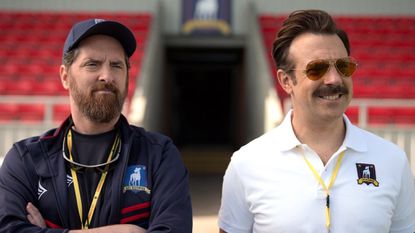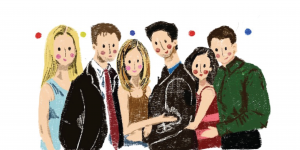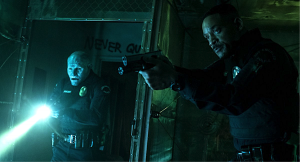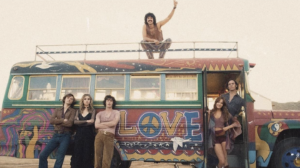It’s impossible to talk about pop culture during the pandemic without mentioning the masterpiece that is Ted Lasso. The show follows an American football coach, Ted Lasso (Jason Sudeikis), as he moves to England to coach a Premier League soccer team, even though he doesn’t know how soccer works. His boundless optimism and constant pop culture references make up for his lack of soccer knowledge, bringing him closer to his players and the team’s front office. Apple TV+’s hit show captivated audiences with its first season and picked up 20 nominations at the Emmys this year, winning seven. The second season of the show has outdone the first as Ted takes a backseat, allowing the supporting cast to shine and continuing to hilariously and poignantly engage with important themes such as mental health and loss as they affect the AFC Richmond team.
By far the biggest shift in the show has been the way in which it has given more space to the incredibly talented supporting cast. Rebecca Welton (Hannah Waddingham), the owner of the team, steals almost every scene she’s in as she deals with Richmond’s relegation to a lower level league as well as her own relationship issues. The show gives Richmond’s favorite couple, Roy Kent (Brett Goldstein) and Keeley Jones (Juno Temple), their own story arcs this season. Roy has to sort out his life after retiring from the sport he’s played his entire life, and Keeley uses her business savvy to branch out and start her own firm away from Nelson Road, Richmond’s home stadium. All three stories complement each other, and the addition of the characters’ individual perspectives elevates the show as a whole.
The one-off episode “Beard After Hours” demonstrates how the new season has taken more risks with its storytelling and focus that pay off perfectly. The episode follows Coach Beard (Brendan Hunt), a character who has always been a bit of a mystery, through London at night as he tries to recover from a horrible loss to Manchester City. Coach Beard stumbles through London’s nightlife scene, meeting new people and coming close to death. The entire episode is shot in a completely different style than the rest of the show: full of neon lights, street chases, and little dialogue. Like “Teddy Perkins” from Atlanta, this almost-bottle episode delves into deeper issues through the lens of a supporting character, someone whose thoughts we don’t normally have access to in the other episodes of the show. It proves that Ted Lasso is ready to experiment with its style.
By decentering itself from Ted, the show gains a broader scope to tackle more of the issues that face the team. Mental health, especially the ways in which it intersects with sports, becomes a key theme of the season. The team hires sports psychologist Sharon Fieldstone (Sarah Niles) who ends up staying for the majority of the season, helping all of the players and ultimately Ted, whose constant positivity is a product of unresolved issues from his childhood. Other issues like the team’s protest against their sponsor for corruption and environmental degradation also get some attention, although the show doesn’t deal with them as effectively. Instead, they’re passed over by the next episode. However, the second season’s discussion of mental health in sports is impressive and timely given the important conversations surrounding Naomi Osaka and Simone Biles’s decisions to prioritize their mental health this past summer.
Ted Lasso’s second season manages to outdo the first while keeping the same optimistic worldview that made it popular in the first place. The stellar supporting cast, riskier storytelling, and contemporary themes elevate the show. It’s not just about Ted anymore, and that’s what makes it so good. I can’t wait for what the future holds for AFC Richmond in season three.







